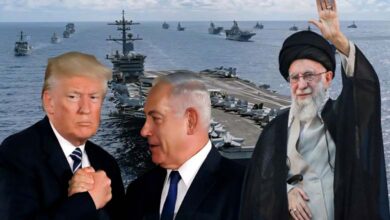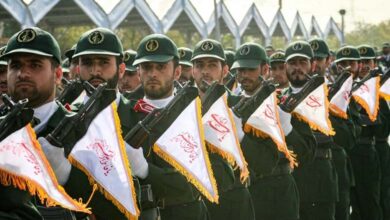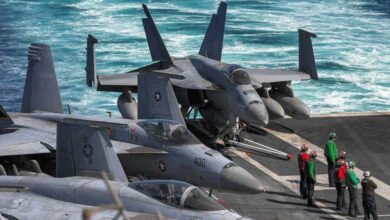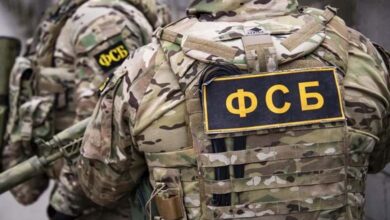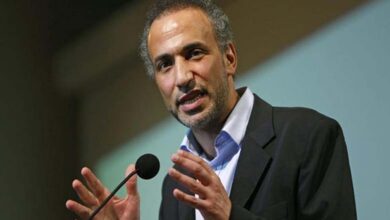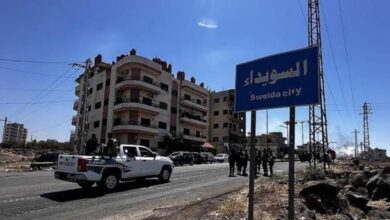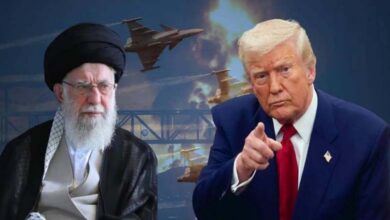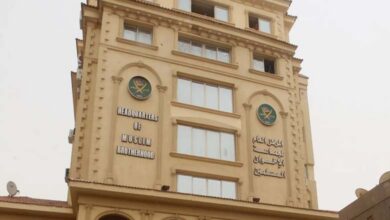Baghdad Rules Out Forced Disarmament of Militias Amid Security Concerns

Fouad Hussein’s stance stems from a clear recognition of a complex reality on the ground: the deep-rooted influence of militias, particularly those backed by Iran, which have become a decisive factor in Iraq’s political and security equation.
-
Baghdad Rules Out Forced Disarmament of Militias Amid Security Concerns
-
Iraq – Al Sudani resolves dispute over the administration of the intelligence service
The recent statements by Iraq’s Deputy Prime Minister and Foreign Minister, Fouad Hussein, highlight the government’s growing concern over the thorny issue of “restricting weapons to state control,” given the entrenched power of armed groups with organic and political ties to Tehran. This concern arises at a time when Baghdad faces mounting domestic and international pressure to take bolder steps toward ending the phenomenon of uncontrolled arms.
In a televised interview on Sunday, Hussein stressed that “the Iraqi government cannot disarm the Popular Mobilization Forces by force.” This direct message underscores the difficulty – if not the impossibility – of addressing the matter through military or security confrontation, given the grave domestic repercussions such an approach could trigger in a country still plagued by political and security fragility.
-
Iran’s militia infiltration of Iraqi authority … a US report warns
-
U.S. Moves to Sanction Baghdad Over Iranian Influence
This official stance reflects an awareness of a skewed balance of power: armed factions, especially Iran-backed groups such as Kataib Hezbollah, are not merely part of the official Popular Mobilization Forces but operate with such autonomy that bringing them under state control is virtually impossible without risking all-out confrontation.
The foreign minister admitted that the timing of the Popular Mobilization law was ill-chosen, implying that the legislation lacked a long-term strategic vision and was instead a response to immediate wartime needs during the fight against ISIS. He added that the Iraqi situation resembles the Lebanese model, where Hezbollah’s weapons can only be addressed through dialogue – a logic he sees as applicable to Iraq’s case.
-
Ballot Cards and Partisan Directives: Fears of Electoral Interference by Iraq’s Popular Mobilization Forces (PMF)
-
U.S. Pressure on Baghdad Mounts to Halt Attacks on Kurdistan’s Oil Industry
This comparison with Lebanon reflects the government’s fear of replicating a “constrained state” scenario, forced to coexist with armed groups that, at times, wield greater power than official institutions. Against this backdrop, Baghdad favors dialogue – however slow and inconsistent – over escalation, in order to avoid sliding into chaos.
Yet the militias themselves show little inclination to comply. On the contrary, their rhetoric appears increasingly confrontational. Kataib Hezbollah, in a statement last Friday, reaffirmed its commitment to the “weapons of resistance,” describing them as essential for “deterring aggressors and defending the oppressed.” The group even called for strengthening its arsenal with advanced weaponry, a move seen as a direct response to Prime Minister Mohammed Shia al-Sudani’s call to curb uncontrolled arms.
-
Qaani in Baghdad to Impose Iranian Agendas on the Arab Summit
-
Did Al-Sharaa Demand U.S. Protection to Attend the Arab Summit in Baghdad?
Sudani, who has sought to strike a delicate balance, took the unprecedented step last week of dismissing the commanders of the 45th and 46th brigades of the Popular Mobilization – both believed to be close to Kataib Hezbollah – while referring several individuals involved in an armed attack on the Karkh Agriculture Directorate to the judiciary. However, these symbolic measures were rejected by the armed factions, which view them as a challenge to their status and interests.
Meanwhile, the United States continues to pressure Baghdad, demanding the dismantling and disarmament of militias as a prerequisite for long-term support. This American insistence coincides with growing regional and international concerns that these groups serve as Iran’s unofficial proxies in Iraq, undermining the country’s stability and sovereignty.
-
Washington Wields the Maximum Pressure Card against Baghdad
-
Iraqi Move to Release Frozen Iranian Funds in Baghdad
Hussein, for his part, noted that Iran had expressed gratitude to Baghdad for its stance during the so-called “12-day war,” a period of regional escalation in which Iraqi factions supported Tehran. He also emphasized the need to maintain the presence of coalition forces in Iraq, calling it a “necessity” at this stage – a position unlikely to find favor among political forces and militias opposed to U.S. presence.
Caught between overlapping local and regional pressures, the Iraqi government finds itself in a highly sensitive position: it must assert state sovereignty while recognizing that any direct attempt to uproot militias by force risks sparking a devastating internal conflict.
Ultimately, Baghdad appears to be betting on gradual de-escalation and possible internal or regional shifts that may alter the balance of power. For now, however, the heavy weaponry of the militias remains outside the authority of the state, awaiting a solution that is far from imminent.


